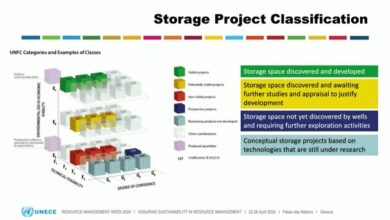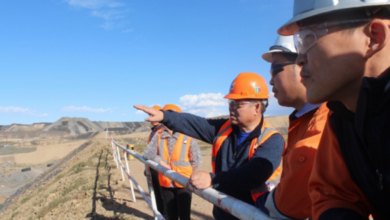UNECE strengthens cooperation with Russia on resource management
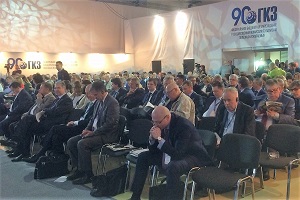
The State Commission on Mineral Resources of the Russian Federation (GKZ) announced it will bridge its new national solid minerals classification to the United Nations Framework Classification for Resources (UNFC) at an international conference held in Moscow, 30-31 May. The solid minerals system is currently being updated and is scheduled to be finalized before year-end, following which work on the bridging document to UNFC will start. This follows the successful bridging to the 2013 oil and gas classification system of the Russian Federation to UNFC that was finalized in September 2016. Attention was drawn to this bridging and its value in facilitating global communications on numerous occasions at the conference.
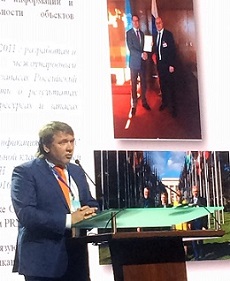
In particular, Mr. Igor Shpurov, General Director of GKZ, highlighted the importance of the petroleum bridging document for enhancing international cooperation in the oil and gas industry in Russia.
GKZ celebrated its 90th anniversary on 1 June and used the opportunity to organize the International Conference immediately prior. The State Commission was established in 1927 with the key goal to standardize Russia’s mineral resource sector. Focussing on Issues of Expert Evaluation of Mineral Reserves in the Light of Cooperation with International Classifications, the Conference was opened by Mr. Evgeniy Kiselev, Deputy Minister of Natural Resources and Ecology and Chief of the Federal Agency on Mineral Resources. The event was organized by the European Union of Experts in the Subsoil (EUES) with the support of UNECE, the Ministry of Natural Resources and Environment of the Russian Federation and GKZ and gathered over 300 experts from the oil and gas and mining sectors from countries worldwide.
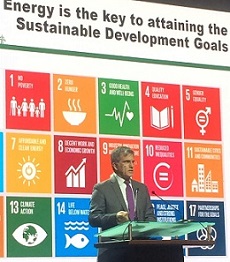
Mr. Scott Foster, Director, UNECE Sustainable Energy Division, in his opening remarks drew attention to the importance of energy in attaining the 2030 Agenda for Sustainable Development, which encompasses both the 17 Sustainable Development Goals (SDGs) and the Paris Agreement on Climate Change. He underlined the importance of collaboration on energy among countries for tackling common energy challenges and shaping a sustainable energy future for all noting that the long-standing and constructive cooperation between UNECE and the Russian Federation on UNFC is one such example. UNFC was presented as a modern system for consistent and coherent classification and sustainable management of all raw material and energy resources. The current work to develop guidelines to accommodate social and environmental considerations in UNFC will increasingly allow the system to help deliver on the SDGs. A key benefit of UNFC is its flexibility and ability to be adapted for diverse national and regional requirements.
In his remarks, Mr. David MacDonald, Chair of the UNECE Expert Group on Resource Classification (EGRC) and Vice President, Segment Reserves for BP, emphasized the value of UNFC as a bridge to improved communication across all the stakeholders involved in resource management ranging from governments, industry, civil society and the financial reporting sector. He noted that UNFC is now being used by an increasing number of these stakeholder groups worldwide. Highlighting the importance of competent application of the clear and consistent definitions found in UNFC, Mr. MacDonald observed, “the recently published guidelines prepared by the EGRC provide the tools and criteria that any organization can use to develop an appropriate policy for competent persons.”
For further information, visit http://www.unece.org/energy.html or contact Charlotte Griffiths at [email protected].

